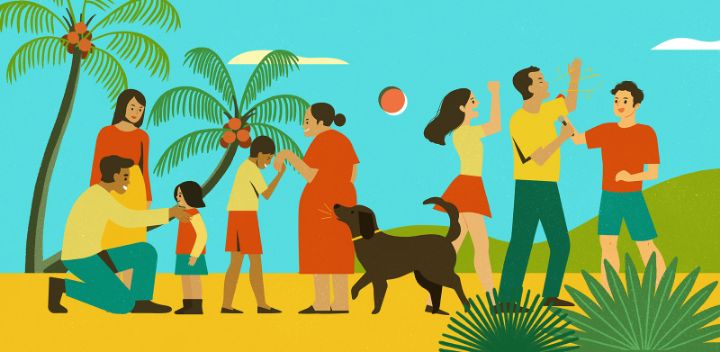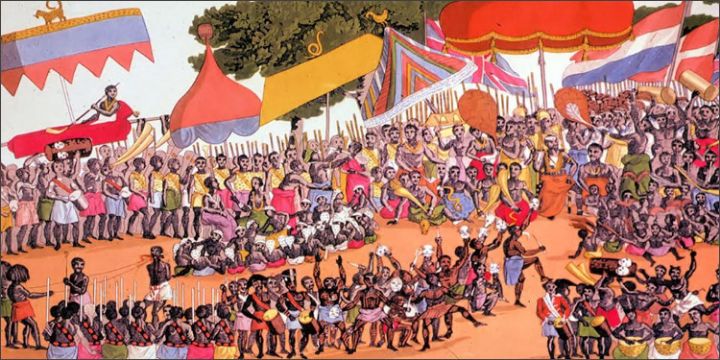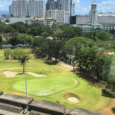Words by Christiana Catu
“Ano nga ulit course mo?” a family member asks for the nth time. You give an awkward smile, take a deep breath, and answer with the calmness and confidence of having practiced this speech for the past couple of years, mostly during family reunions. When it comes to college in the Philippines, families are usually fixated on having a doctor, a lawyer, or an engineer among them. Well, dearest titos and titas, you are in for a surprise! While being a doctor, lawyer, and engineers are undoubtedly noble professions, there is a whole other world of passions to pursue, interests to venture into, opportunities to take, and services the world is in need of. A lot of universities have pioneered courses to cater to society’s ever-evolving needs, but because these courses remain unfamiliar to the majority, only a small number of students get to discover these exciting fields.
So, here are 7 college programs you may have not heard of, told by current students and alumni who graduated from them:
7. Philippine Arts

Geraldine Sy / © Culture Trip
About this program:
“The courses offered center on Philippine arts and culture with management courses. Fields of study include the cultural and artistic influences from precolonial Philippines to the present, numerous workshop courses on various art forms, namely theater, visual arts, music, literature, and many others, and management courses for art-related organizations, and productions.
Since the curriculum offers courses in various fields, the students are trained to be experts on all of these fields and are free to choose whatever field they want to specialize in, based on their interests. In my case, for example, I am a theater and architecture enthusiast, and I am very much interested in cultural heritage conservation. Some courses allow me to be well-educated in these areas through workshops, productions, researches, lectures, and seminars.”
Job Opportunities:
“Some have become professional art practitioners and cultural workers who work in artistic and cultural organizations, museums, and agencies both government and non-government. Since the graduates have been trained enough in the field of management, some of them have gone to work in areas like organizational development, events management companies, and even in banks.”
Source: Rozhie, BA Philippine Arts graduate
This course is offered at: University of the Philippines Manila, De La Salle-College of Saint Benilde (AB Arts Management), and University of the Philippines Diliman (BA Philippine Studies)
6. Development Studies

© Asian Development Bank
About this program:
“Development Studies is a multidisciplinary social science major that puts emphasis on development theories, especially in the third-world and the Philippine context. The program teaches students to think and analyze critically the economic, political, social, and cultural dimensions of society so as to identify underdevelopment, as well as formulate a solution hereto using both mainstream and alternative models of development.
Perhaps the best thing about this program is the social relevance of the topics discussed, and how the program encourages its students to live up to the praxis (theory and practice).”
Job Opportunities:
“A lot of Development Studies graduate go on to take graduate studies, either pursuing a Master’s Degree or a Juris Doctor Degree. For others who want to work directly after graduation, graduates of the program are very much welcome in government organizations, NGOs, foreign affairs, Human Resources, research and the academe, financial analysis, and the like.”
Source: Charm, 3rd year BA Development Studies student
This course is offered at: Ateneo de Manila University, De La Salle University Manila, University of the Philippines Manila
5. Social Sciences
About this program:
“Social Sciences holds true to its name because it revolves around understanding society, and realizing how interconnected everything is through multiple disciplines such as political science, economics, history, anthropology, sociology, geography, psychology, etc. Learning about certain phenomena and areas in the society does not only revolve answering the basic 4W’s (Who, What, When, and Where) alone but also “Why” and “How”.
We try to answer challenging questions that need to be answered with careful thought and analysis. Questions such as “What led to the lengthy years of Spanish colonization?”, “Why do some of the urban poor in Recto own big flat screen TVs?” Etc. It is rather important to apply the theories and concepts learned from the social sciences because “Theory without practice is empty and practice without theory is blind.””
Job Opportunities:
“It’s ‘a jack of all trades, a master of none’. As an example, you have a wide spread of land in front of you —all yours to experience, learn, and understand—the society. It would depend on you, where to dig deep and enhance the soil. This is the social sciences —it offers a broad range of knowledge. It depends upon your preference what to specialize in afterwards. Some Social Sciences graduates have entered banking and financial institutions, government work, NGOs, international relations, academe and research, public policy, national security and defense, rural community work, public health, or even law.”
Source: Julienne, BA Social Sciences graduate
This course is offered at: Ateneo de Manila University, University of the Philippines (Baguio and Manila)





